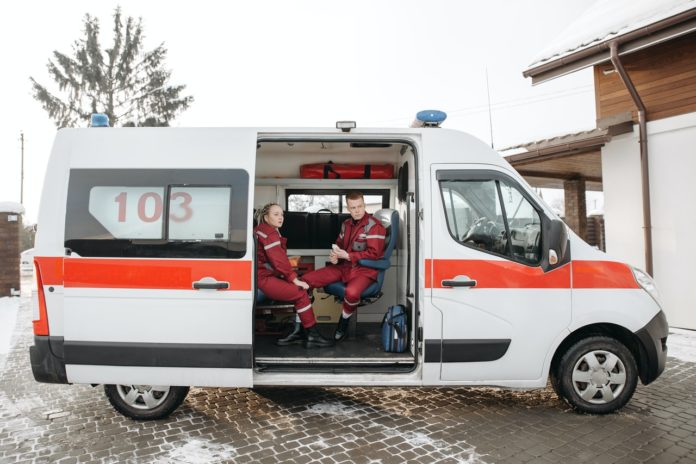When you are in an emergency, the first thing you think about is calling emergency services. The dispatcher will then access your situation before deciding if your case is an emergency or not.
If your case is deemed an emergency, an ambulance will come to your location. If not, they may assign someone to help you administer first aid as you look for means to get to a hospital.
But is it possible to have an ambulance to take you home after being involved in an incident that gets you to the hospital? This post will answer that, but let’s first understand ambulance insurance policies.
Understanding Ambulance Insurance Covers
Imagine being in an accident, calling 000, taking that traumatic trip to the hospital only to come home to a bill. That does not sound like an experience anyone would like to have. But, it can happen to you if you do not have an ambulance insurance cover unless you live in Queensland or Tasmania, where the state covers ambulance bills.
This means that if you live in other Australian states, you will need to carry an ambulance cover on top of your private health cover to help avoid such situations. In a state like Victoria, ambulance insurance cover can be as low as $49 for an individual or $97 per family. Conversely, an emergency road transport cost can be as high as $1,200.
This makes carrying an ambulance cover an excellent financial decision. If you are not sure what ambulance cover to buy, iSelect is an excellent comparison resource that can help you compare ambulance cover plans in Australia.
So, Can An Ambulance Take You Home?
Yes and no. Yes, it can take you home if you pay with out-of-pocket cash and if it’s a private ambulance. Most ambulance insurance policies only provide coverage for emergencies.
An emergency can differ in its definition from one insurance provider to another. It is a dispatcher’s job to determine if a case qualifies as an emergency or not. Transportation from the hospital to your home is often not an emergency. Therefore your ambulance cover will not pay.
Transportation from the hospital to your home is not the only exemption in ambulance insurance coverage. Other exemptions include:
- Transportation to a nursing home
- Transportation from one hospital to another; if you need to be transported to another hospital for further treatment, the treating hospital should provide an ambulance, with cost becoming part of the hospital bill.
- Transportation from a nursing home for ongoing treatment
When to Call an Ambulance
According to Healthdirect, a person should only call for an ambulance when there is an emergency. Below is a list of situations that are considered an emergency by Healthdirect.
- Suspected heart attack. Heart attack symptoms are unexplained or sudden pain in the chest or tight chest.
- Suspected stroke. symptoms of stroke include numbness or paralysis of the face, arm, or leg
- Difficulty breathing
- Seizure
- Fall from a height
- Stab or gunshot wound in a sensitive area
- Uncontrollable bleeding
- Loss of consciousness
- Severe road accident
What If it’s Not an Emergency?
If your situation doesn’t constitute an emergency, Healhdirect recommends not calling 000; instead, you can take any of the following actions:
- Call Healthdirect (also referred to as nurse on call) at 1800 022 222
- Visit a general practitioner
- See a pharmacist if it’s a case that can be treated with over-the-counter drugs.
Wrapping Up
Emergencies happen when least expected. Ensuring that you have ambulance insurance cover before they happen can guarantee you speedy help without worrying about the cost.
Keep in mind that an ambulance insurance cover only caters to emergencies. This means transportation from hospital to home is not covered. However, it is possible to foot your home transportation from pocket money.


